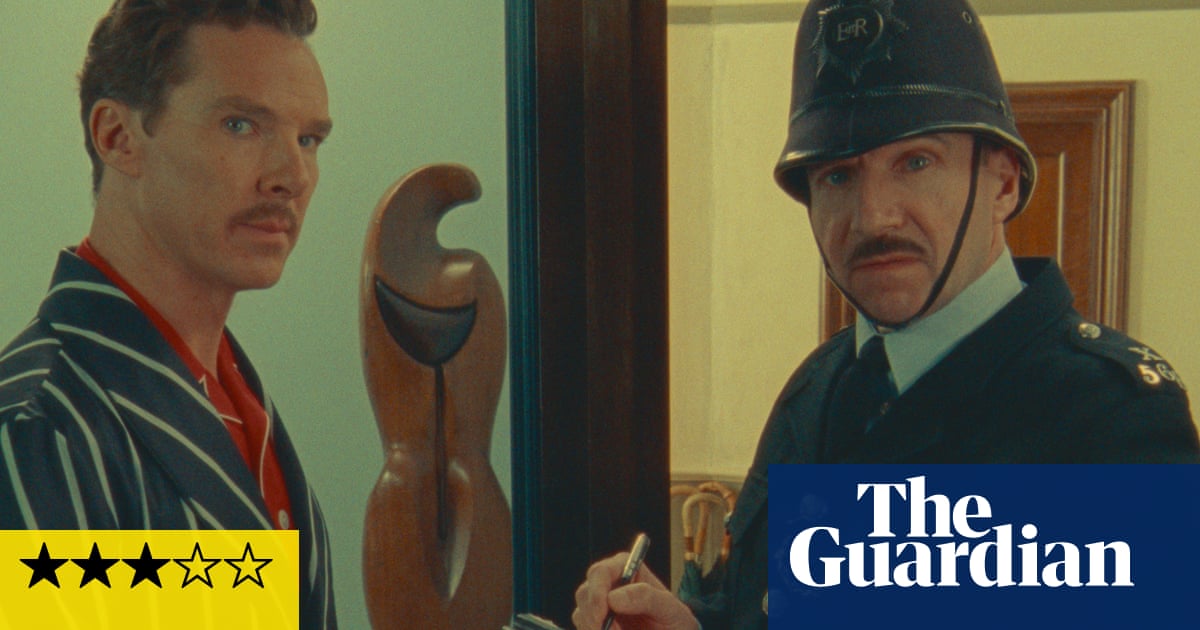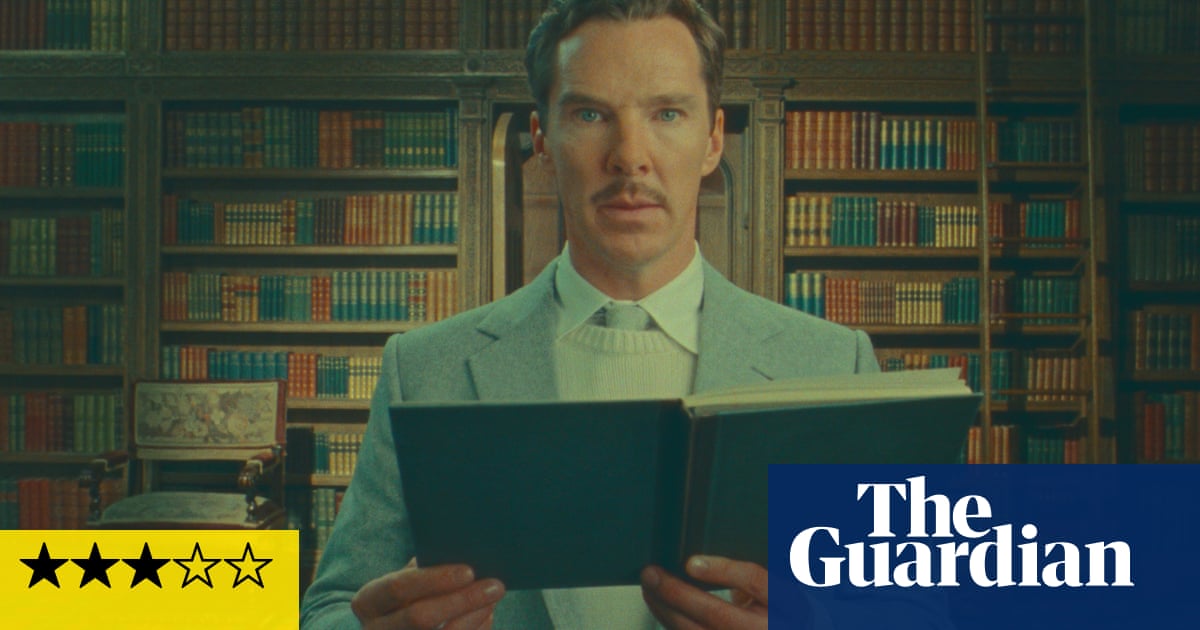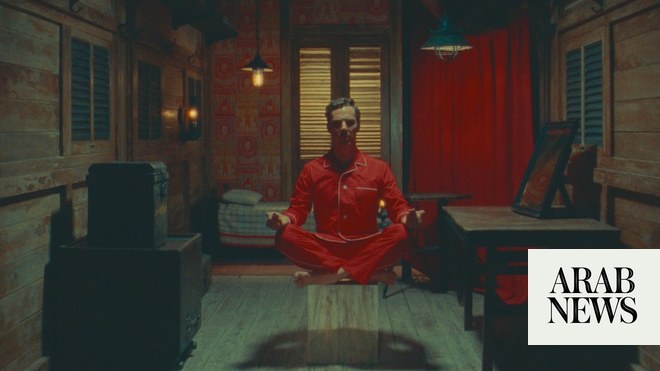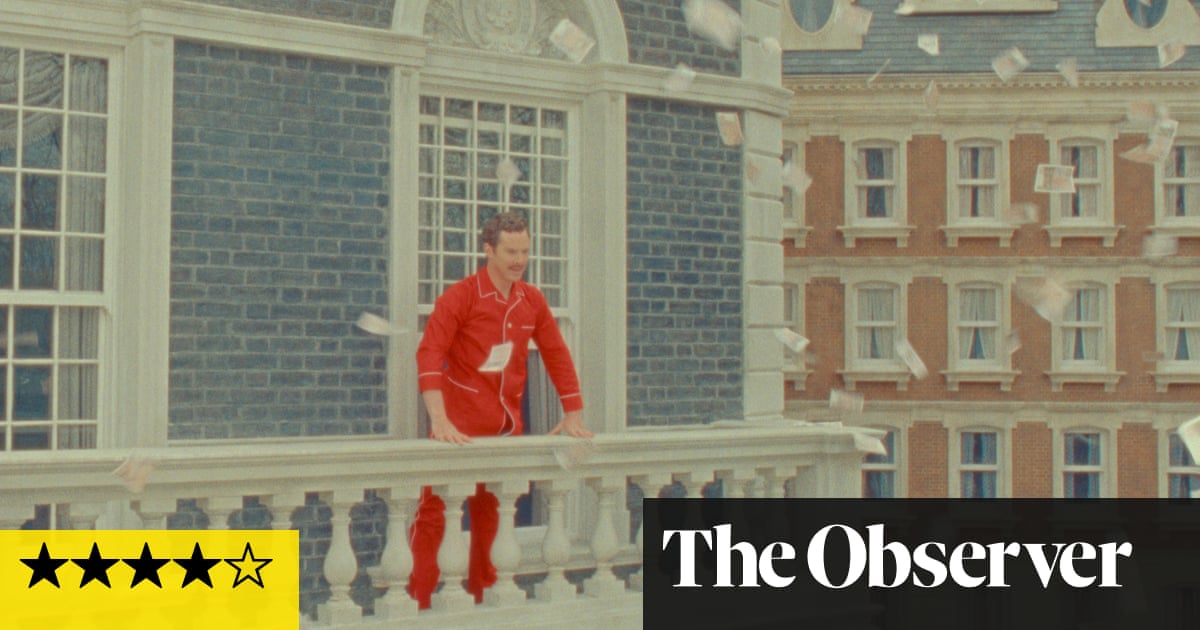
Wes Anderson’s new short for Netflix is a slight piece of amusement based on Roald Dahl; at 37 minutes long, its brevity perhaps exposes or even creates a flimsiness in his signature style that in a longer film would have more space to breathe and parade itself. And perhaps this could just as easily have been a full-length feature.
It is Anderson’s second Dahl adaptation, after the animated Fantastic Mr Fox from 2009. This is not one of Dahl’s famous children’s tales, but instead from a 1977 collection intended for older teens: The Wonderful Story of Henry Sugar and Six More, twisty stories halfway in tone between his young fiction and the cynical, macabre adult pieces with which he started out, and maybe the nearest Dahl came to YA. And yet there’s something gentle and almost anodyne in the denouement – atypical for both Dahl and Anderson.
Ralph Fiennes plays (among other roles) Dahl himself in his writing hut, a narrator who calmly and frankly lays out what is in store for us. A distant church bell starts tolling in the middle of his opening monologue, quite unnoticed, a classic left-field ambient detail. The story is shown with scene-settings revealed to be theatrical flats, dismantled and taken away at the end of each episode by distracted stagehands. Benedict Cumberbatch, funny yet inscrutable, plays Henry Sugar, a wealthy, greedy bachelor who, while at a country house party, is captivated by a volume he chances upon in the library: a medical case history of an Indian stage performer Imdad Khan (Ben Kingsley), written by Khan’s physician, Dr Chatterjee (Dev Patel). This man has X-ray vision (as no one oddly thinks to call it) through studying the mind-focusing discipline of a certain yogi; he is played with marvellous drollery by Richard Ayoade, a performer surely born to work for Anderson. Sugar studies the technique so he can cheat at cards and then embarks on a global tour of casinos.
This film is intriguing, even exhilarating, in its way, and maybe no other director could have represented the material as well; a straight depiction (in the manner of the old ITV programme Roald Dahl’s Tales of the Unexpected) showing Henry Sugar and Imdad Khan and their enigmatically nonexistent inner lives might have been unsatisfying. Moreoever, with each new Anderson film it has become traditional to worry that it’s always the same thing, but then to ponder that this is arguably the case for all other film-makers whose styles are not as obtrusive as Anderson’s.
Yet here the two-dimensionality, though always witty, is arguably a bit too meagre, especially when the 17-year-old Khan first sees the yogi in the jungle. He tells us in narrative voiceover how astonished and entranced he was, but Anderson isn’t interested in showing us a closeup of this epiphany: just Kingsley’s deadpan face afterwards as if nothing all that important has happened. Henry Sugar’s face and his whole being seem also unchanged by the remarkable things he’s been through. It’s supposedly an almost Dickensian transformation, and yet the Keatonian stoneface is intact. Well, it’s all part of the comic effect.












